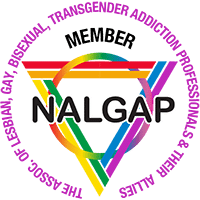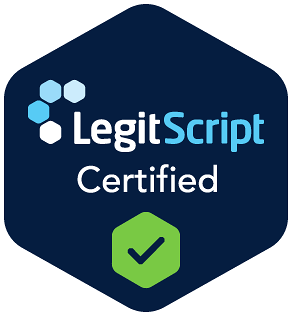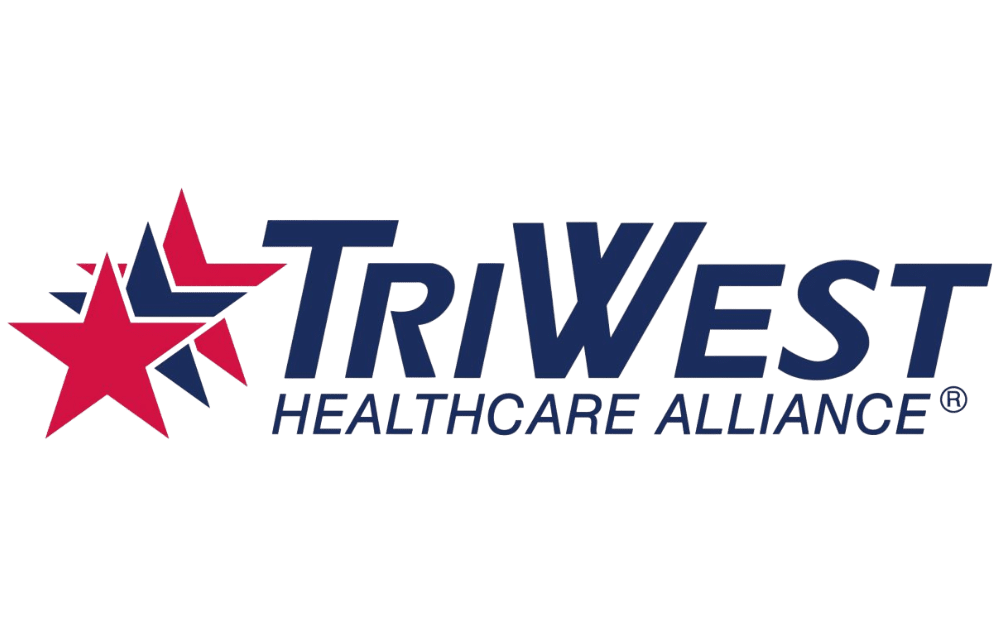Colorado Rehab
Comprehensive Treatment Options
At Mile High Recovery Center, we understand that each individual’s journey to recovery is unique, which is why we offer a range of treatment options. From residential treatment to partial hospitalization (PHP), intensive outpatient (IOP), and outpatient programs, our services cover every stage of the recovery process. Our commitment to providing same-day admission and 24-hour access for intake ensures timely intervention when it is needed the most.
Our residential treatment programs offer a structured environment with 24/7 support, allowing clients to focus solely on their recovery journey. For those who require a more flexible approach, our PHP and IOP programs offer intensive therapy while allowing clients to return home at the end of the day. This flexibility enables individuals to maintain personal or professional responsibilities while engaging in treatment.
Our outpatient programs offer continued support and therapy sessions for individuals progressing in their recovery, helping them transition back into everyday life while maintaining a strong support network at Mile High Recovery Center.
Integrated Clinical and Experiential Therapies
Mile High Recovery Center takes a holistic approach to treatment by integrating evidence-based clinical therapies with experiential modalities. Our clinical therapies include Cognitive Behavioral Therapy, Dialectical Behavior Therapy, EMDR, and Motivational Enhancement Therapy. These therapies are designed to address the root causes of addiction and help clients build healthier coping strategies.
In addition to clinical approaches, we incorporate experiential therapies such as adventure therapy, equine-assisted therapy, and art and music activities. These therapies offer creative outlets for clients, encouraging self-expression and personal growth in a supportive environment. By combining traditional and experiential therapies, we provide a comprehensive treatment experience that addresses the mind, body, and spirit.
Our nutrition education sessions teach clients about the importance of a balanced diet in recovery, while adventure therapy leverages the beauty of Denver’s natural surroundings to promote wellness and healing.
Substance Use Disorders
Mile High Recovery Center specializes in treating a wide range of substance use disorders, including alcohol, opioids, fentanyl, benzodiazepines, stimulants, cocaine, methamphetamine, prescription drugs, and cannabis. Our team of experienced clinicians tailors treatment plans to meet the specific needs of each client, ensuring an individualized approach to care.
In addition to treating substance use disorders, our dual-diagnosis capabilities allow us to address co-occurring mental health conditions such as anxiety, PTSD, bipolar disorder, and schizoaffective disorders. By treating both the addiction and underlying mental health issues, we aim to provide a comprehensive path to recovery.
Housing-to-Treatment Pipeline
One of the standout features of Mile High Recovery Center is our integrated housing-to-treatment pipeline. Starting from our nine sober living homes, individuals can seamlessly transition into our accredited treatment center, receiving consistent support throughout their recovery journey. This integrated approach reduces the risk of relapse by offering a continuum of care that emphasizes stability and support.
Our sober living homes provide a structured yet independent living environment where individuals can develop life skills, nurture healthy habits, and build a strong foundation for recovery. This pipeline supports long-term recovery by maintaining a focus on both treatment and everyday living skills.
Community and Support Systems
We believe that community plays a crucial role in recovery, which is why we foster an active alumni community that supports long-term outcomes. Alumni have access to support networks and resources that provide ongoing encouragement and guidance.
Our team includes clinicians and staff with lived recovery experience, offering empathy and insight that enhances the therapeutic process. These personal experiences create a relatable and understanding environment where clients feel comfortable and supported.
- Regular alumni events offer opportunities for connection and reflection, reinforcing a sense of community and shared purpose.
- Peer support groups provide a platform for sharing challenges and successes, promoting accountability and personal growth.
Coordinated Care and Insurance Verification
Mile High Recovery Center is committed to making treatment accessible and affordable. We coordinate with local healthcare providers and insurers to streamline transitions of care, ensuring continuity and convenience for our clients. Our team verifies insurance coverage and accepts in-network reimbursement from major carriers such as Aetna, Cigna, and Blue Cross Blue Shield.
This coordination reduces the administrative burden on clients and allows them to focus on their recovery journey. We also offer financial counseling and assistance to help clients understand their coverage options and minimize out-of-pocket expenses.
Diverse Client Base
At Mile High Recovery Center, we embrace diversity in our client base and are committed to providing inclusive care that meets varied needs. Our services cater to adults and adolescents, family members seeking family therapy, individuals from the LGBTQ community, and military beneficiaries through Tricare.
Our personalized treatment plans are designed to accommodate different backgrounds and experiences, ensuring that every client feels valued and supported. We recognize the unique challenges faced by our diverse clientele and tailor our programs to address those challenges effectively.
Accreditation and Recognition
Mile High Recovery Center proudly maintains accreditation and industry recognition, displaying affiliations with the Joint Commission and NALGAP, and holding LegitScript verification. These certifications reflect our commitment to maintaining high standards of care and compliance with industry best practices. Our reputable standing assures clients that they are receiving quality treatment from a trusted provider.
We continually strive to enhance our services through ongoing professional development and adherence to rigorous standards, ensuring that clients receive the most effective and up-to-date treatment possible.
Questions and Answers
What sets Mile High Recovery Center apart in the Colorado Rehab field?
Mile High Recovery Center’s unique integration of evidence-based therapies and experiential modalities, combined with an inclusive community and robust support systems, sets us apart in the Colorado Rehab landscape. Our commitment to personalized care and a housing-to-treatment pipeline fosters lasting recovery.
How does Mile High address dual diagnosis in treatment plans?
Our dual-diagnosis approach ensures that both substance use disorders and co-occurring mental health conditions are addressed simultaneously. This comprehensive treatment method aims to heal the whole person by providing therapies tailored to each client’s specific needs.
What treatment options do Denver rehab centers offer?
Denver rehab centers, like Mile High Recovery Center, offer a variety of treatment options to cater to individual needs on the road to recovery. From residential treatment programs, which provide a structured 24/7 environment for intense focus on recovery, to flexible options like partial hospitalization (PHP) and intensive outpatient programs (IOP) that allow individuals to maintain daily responsibilities while receiving care. These centers also provide outpatient programs to support continued recovery and transition back into everyday life, ensuring that the support network remains strong. This comprehensive range of services allows for personalized care that aligns with each individual’s unique recovery journey.
How do integrated therapies enhance recovery?
Integrated therapies are a hallmark of effective rehab centers. At Mile High Recovery Center, the blend of evidence-based clinical therapies, such as Cognitive Behavioral Therapy (CBT) and Dialectical Behavior Therapy (DBT), with experiential activities like adventure therapy and equine-assisted therapy, provides a holistic approach to healing. These therapies not only address the psychological aspects of addiction but also engage clients physically and emotionally, promoting overall health and wellness. For example, someone might find that expressing themselves through art or music can uncover underlying emotional issues linked to their addiction, paving the way for deeper healing. By combining these diverse therapies, individuals receive comprehensive care that fosters personal growth and resilience.
Can rehab centers help with dual-diagnosis issues?
Absolutely, dual diagnosis is a critical area of focus for many rehab centers, including Mile High Recovery Center. Dual diagnosis refers to the coexistence of a substance use disorder and a mental health condition such as anxiety or PTSD. Treating both conditions simultaneously is crucial as they can perpetuate one another. For instance, untreated depression can lead to substance abuse as a form of self-medication, while addiction can exacerbate mental health symptoms. By providing tailored therapies for both the addiction and the mental health issues, rehab centers aim to heal the whole person, offering a more sustainable path to recovery. If you’re considering treatment, reflect on any mental health symptoms you might be experiencing alongside addiction and discuss them with your chosen rehab center to ensure a comprehensive treatment plan.
What is the housing-to-treatment pipeline and why is it important?
The housing-to-treatment pipeline is a seamless transition from sober living environments to formal treatment facilities and is a key feature of Mile High Recovery Center. Individuals often start in sober living homes, which provide a drug-free, supportive environment, before moving into more intensive treatment options. This pipeline is important because it reduces the risk of relapse by maintaining a continuum of care that emphasizes stability and support throughout the recovery process. Imagine someone trying to rebuild their life post-addiction. Having a structured environment that gradually reintroduces them to daily responsibilities can make all the difference in their confidence and ability to maintain sobriety. This approach not only supports long-term recovery but also helps individuals develop essential life skills and healthy habits that can sustain them beyond treatment.
How do rehab centers support community and alumni?
Community and alumni support are vital components of ongoing recovery, as seen at Mile High Recovery Center. Alumni programs foster a supportive network that extends beyond initial treatment, offering regular events and peer support groups where individuals can share their challenges and triumphs. These programs provide accountability and encouragement, vital for maintaining sobriety over the long term. Additionally, having access to people who have walked a similar path and can offer empathy and insight can be incredibly inspiring. Are there ways in which you can engage with a recovery community or alumni network, creating connections that bolster your journey?
How does insurance verification work at rehab centers?
Insurance verification is an essential step in accessing affordable addiction treatment. Mile High Recovery Center coordinates with major insurance providers to streamline transitions of care and verify coverage. This coordination helps reduce the administrative burden on clients, allowing them to focus on their recovery. The center works with carriers like Aetna, Cigna, and Blue Cross Blue Shield to ensure that clients receive in-network reimbursement. For someone seeking treatment, understanding your insurance coverage can be daunting, but most centers have dedicated teams to guide you through this process, offering financial counseling to clarify coverage options and minimize out-of-pocket expenses. Have you explored your insurance benefits to see how they can support your recovery journey?
How do rehab centers embrace diversity and inclusivity?
Diversity and inclusivity are cornerstones of effective treatment environments. Mile High Recovery Center is committed to providing care that respects and accommodates diverse backgrounds and experiences, including support for adults, adolescents, families, LGBTQ individuals, and military beneficiaries. This inclusive approach ensures that all clients feel valued and supported, recognizing the unique challenges each group may face. Whether you’re an LGBTQ individual seeking a safe and understanding space or a military veteran requiring specialized care, rehab centers like Mile High tailor their programs to meet these diverse needs. How important is inclusivity in your choice of a rehab facility, and what specific needs must be addressed for your comfort and recovery?
What accreditation and recognition should you look for in a rehab center?
Accreditation and industry recognition are good indicators of a rehab center’s quality and compliance with best practices. Mile High Recovery Center holds affiliations with organizations such as the Joint Commission and NALGAP and maintains LegitScript verification. These certifications assure clients of the center’s commitment to high standards and effective treatment. When seeking a rehab facility, consider these credentials as they reflect the center’s dedication to ongoing professional development and adherence to rigorous standards. Do you feel confident in assessing a rehab center’s credibility based on its accreditations and affiliations?
Resources
- Substance Abuse and Mental Health Services Administration (SAMHSA) – SAMHSA is the leading agency for improving the quality and availability of prevention, treatment, and rehabilitative services in the United States.
- National Alliance on Mental Illness (NAMI) – NAMI is the largest grassroots mental health organization dedicated to building better lives for the millions of Americans affected by mental illness.
- American Psychiatric Association – The APA is the leading professional organization representing psychiatrists in the United States, dedicated to ensuring humane care and effective treatment for all persons with mental illness.
- National Recovery Month – National Recovery Month is a national observance held every September to educate Americans that substance use treatment and mental health services can enable those with mental and substance use disorders to live healthy and rewarding lives.
- National Institute on Drug Abuse (NIDA) – NIDA is a government resource that aims to advance science on the causes and consequences of drug use and addiction and to apply that knowledge to improve individual and public health.
- Alcoholics Anonymous (AA) – AA is an international mutual aid fellowship with the stated purpose of enabling its members to “stay sober and help other alcoholics achieve sobriety.”
















